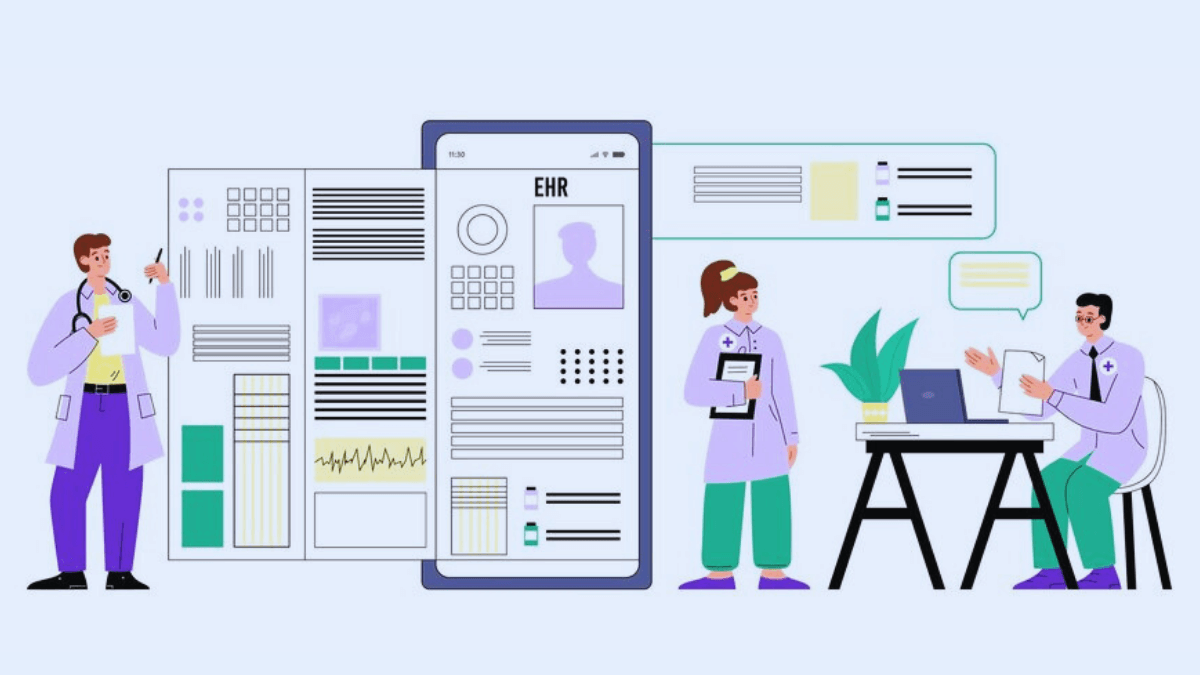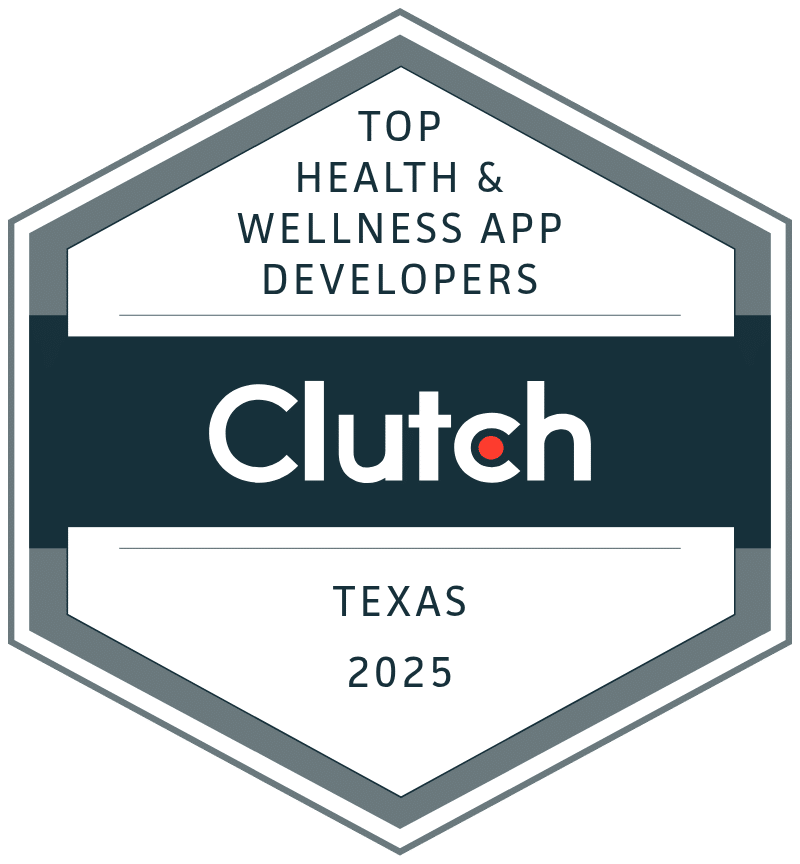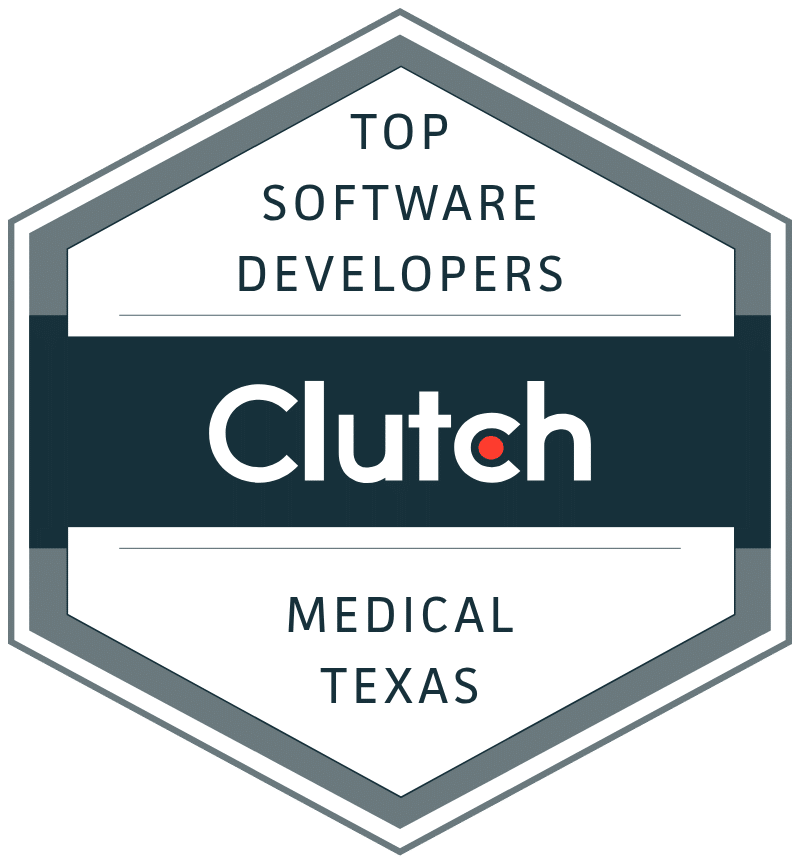Mobile technology has revolutionized the way we access information, communicate, and conduct business. The healthcare industry is no exception, with mobile apps playing an increasingly significant role in healthcare delivery. From improving patient engagement to enabling remote monitoring of chronic conditions, mobile apps have the potential to transform healthcare as we know it. In this article, we will explore how mobile app development is changing the healthcare landscape and how they are empowering patients and healthcare providers alike to take control of their health and well-being.
The Rise of Mobile Apps in Healthcare
The healthcare industry has been one of the most promising fields for technological innovation in recent years. With the advent of mobile technology, healthcare providers and patients can access a multitude of services and resources at their fingertips. This has revolutionized healthcare delivery, improved patient outcomes and enhanced healthcare provider efficiency. In this article, we will explore the growing popularity of mobile apps in healthcare and their transformative impact on patient care, communication, and preventive care.
Why Mobile Apps are Becoming Increasingly Popular in Healthcare
Mobile apps have become increasingly popular in healthcare due to their unique ability to provide personalized services to patients and healthcare providers. These apps can offer a range of features from tracking and managing symptoms to facilitating appointment scheduling, prescription refills, and remote monitoring of chronic conditions. Patients can access their health information anytime, anywhere, and receive updates on their health status in real time.
Healthcare providers can communicate with patients more effectively and streamline administrative tasks. These apps also offer cost-effective solutions to patients who may have limited access to healthcare services, particularly in rural areas or low-income communities. As a result, mobile apps have become powerful tools for improving the accessibility and efficiency of healthcare services while enhancing patient engagement and outcomes.
Enhanced Patient Care: How Mobile Apps are Transforming Healthcare Delivery
Improving Patient Engagement through Mobile Health
Mobile health apps are empowering patients to take control of their health outcomes by providing them with personalized and easily accessible resources. These apps can help patients track and manage their symptoms, monitor their medication adherence, and even receive personalized health recommendations based on their health data. Patients can also connect with healthcare providers through the app, receive virtual consultations, and access educational resources. Mobile health apps are particularly useful for patients with chronic conditions who require ongoing care and support. By integrating patient-generated data into the healthcare system, healthcare providers can provide more personalized and proactive care to their patients.
Enabling Remote Monitoring and Management of Chronic Conditions
Mobile apps are also transforming the way healthcare providers manage chronic conditions. Remote monitoring through mobile apps enables healthcare providers to track patients’ health status in real time, allowing for early detection and intervention before complications arise. Patients can also receive reminders for medication intake, track their symptoms, and receive alerts when they are due for a check-up. This approach to healthcare management is particularly useful for patients who have limited mobility or who live in remote areas. It also improves the overall quality of care, leading to better patient outcomes.
Streamlining Communication: Mobile Apps as a Game Changer for Healthcare Providers
Improving Collaboration and Communication among Healthcare Professionals
Mobile apps are also improving collaboration and communication among healthcare professionals. These apps enable healthcare providers to share patient information and communicate in real time, reducing the risk of errors and delays. Healthcare providers can collaborate on patient care plans, track patients’ progress, and receive alerts when a patient’s condition changes. This approach to healthcare delivery improves the quality of care, reduces healthcare costs, and enhances patient outcomes.
Facilitating Efficient Patient Information Management through Mobile Health Integration
Mobile health apps are also facilitating efficient patient information management. By integrating patient-generated data into the electronic health record system, healthcare providers can access real-time patient information from their mobile devices. This enables healthcare providers to create more accurate and timely diagnoses, reduce administrative tasks, and improve the overall quality of care. Healthcare providers can also receive alerts when patients’ health status changes, enabling them to intervene and provide timely care.
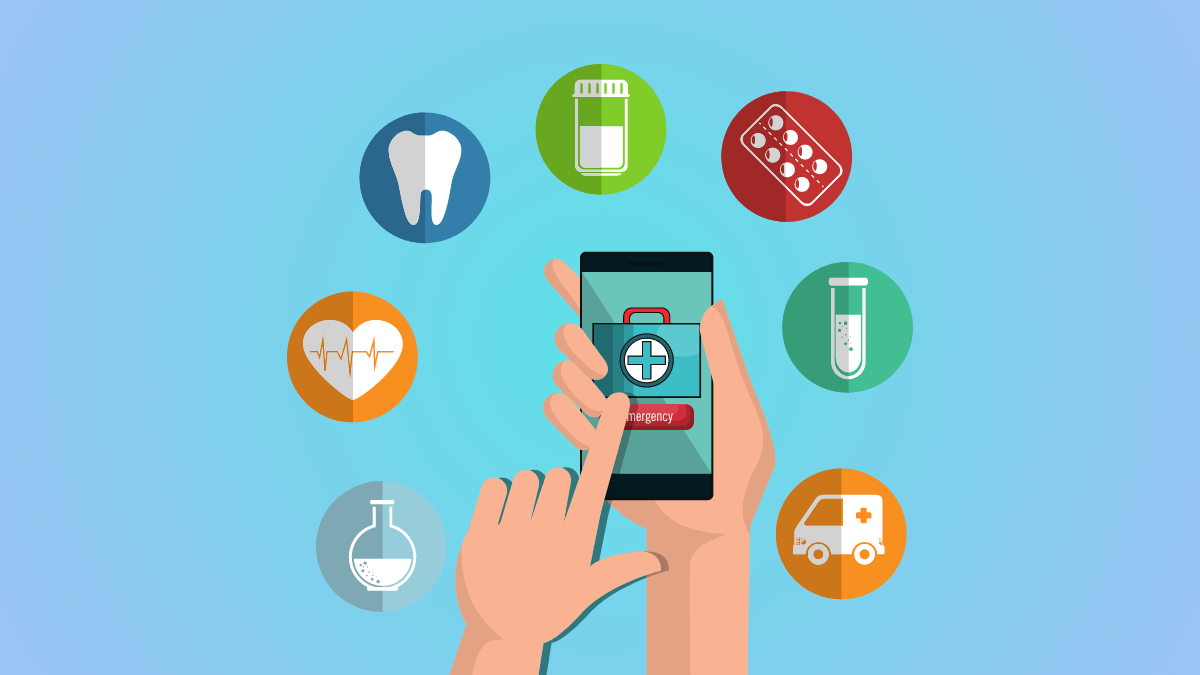
Preventive Care: Empowering Patients with Mobile Health Tools
i. Encouraging Healthy Behaviors and Lifestyle Changes through Mobile Health
Preventive care is an essential aspect of healthcare, and mobile health apps are empowering patients to take control of their health outcomes. Patients can access personalized health information and resources, receive reminders for appointments and health screenings, and track their progress toward their health goals. Mobile health apps can also provide patients with motivational messages, tips on healthy living, and support groups for patients with similar health conditions. These apps encourage healthy behaviors and lifestyle changes, leading to better health outcomes.
ii. Providing Access to Personalized Health Information and Resources Anytime, anywhere.
Mobile health apps also provide patients with access to personalized health information and resources anytime, anywhere. Patients can access educational resources on their health conditions, learn about medications and treatment options, and research potential health risks. These apps also offer patients the ability to access health resources in their native language or communicate with healthcare providers through language translation services. As a result, patients have access to more comprehensive and personalized health information and resources, improving their overall health and well-being.
The Future of Telemedicine: Advancements in Mobile Apps and Remote Patient Monitoring
Mobile technology has revolutionized the healthcare industry by providing easy-to-use applications and remote patient monitoring tools that allow healthcare professionals to deliver care to patients no matter where they are. Mobile apps have the potential to transform healthcare delivery by making it more personalized, convenient, and affordable. The use of mobile health technology is rapidly growing, and the future of telemedicine looks bright, with a variety of advancements in mobile apps and remote patient monitoring on the horizon.
Innovations in Mobile Health Technology and Remote Patient Monitoring
Mobile health technology is evolving at a rapid pace, with new devices and applications being developed all the time. Remote monitoring tools, such as wearable devices, sensors, and mobile apps, are making it easier for healthcare professionals to monitor patients and provide high-quality care. Patients can now use mobile apps to monitor their health, track their medications, and even receive consultations online. With advancements in technology, mobile apps can now provide real-time data to healthcare professionals, allowing for more personalized and targeted care. This technology can improve patient outcomes and reduce costs for healthcare systems.
Benefits of Healthcare App Development
Healthcare app development has brought numerous benefits to both individuals and healthcare providers.
i. Easy access to healthcare services:
Firstly, healthcare apps provide patients with easy access to healthcare services. This means that patients can easily book appointments with doctors, receive medical advice, and even manage their health conditions from the comfort of their own homes. This reduces the need for physical visits to the hospital and minimizes the spread of contagious diseases. It also saves patients time and money as they do not need to travel or take time off work for appointments.
ii. Access to best services:
Secondly, healthcare app development has enabled healthcare providers to offer better services to patients. These apps provide doctors with easy access to patient records and medical history, allowing them to make accurate diagnoses and provide appropriate treatment. They also enable doctors to communicate with their patients effectively and remotely, which reduces the number of unnecessary visits to the hospital. Healthcare apps also promote patient engagement, allowing patients to take an active role in managing their health. This, in turn, results in better health outcomes and lower healthcare costs. Overall, healthcare app development has transformed the healthcare industry, improving access to healthcare services, and enhancing the quality of healthcare services provided.
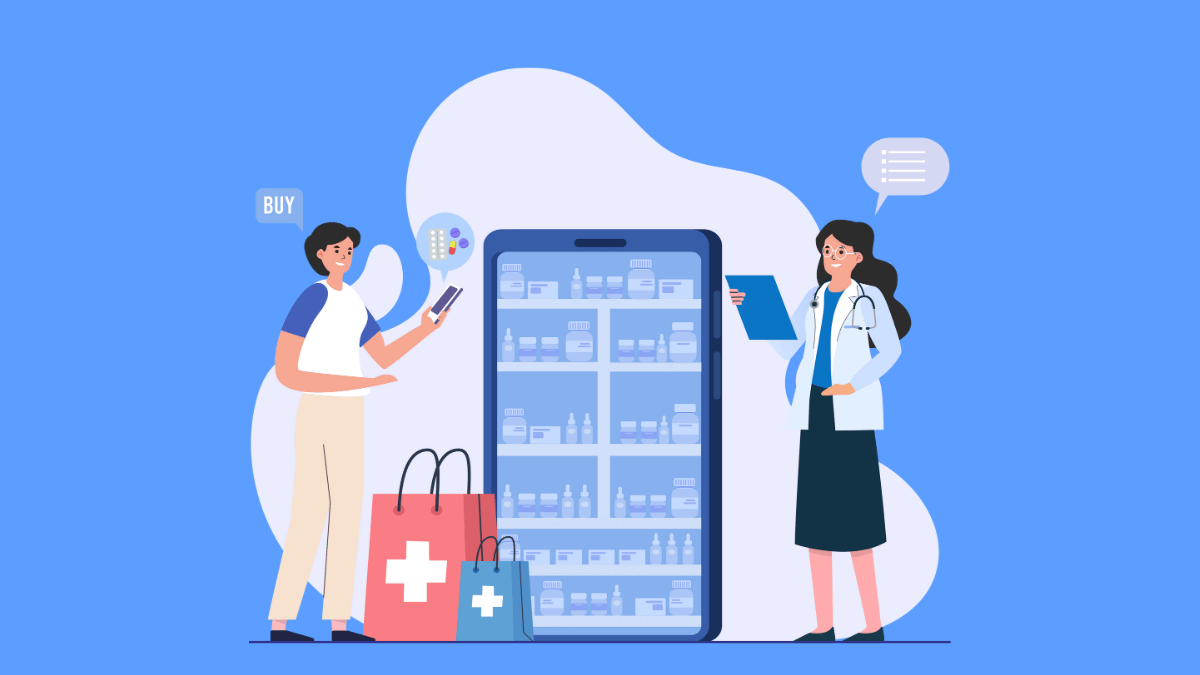
Challenges and Opportunities for Telemedicine in the Era of Mobile Health
While the benefits of healthcare technology and telemedicine are clear, there are also challenges to overcome. One of the biggest concerns is privacy and security. As more personal health information is shared online, healthcare providers need to ensure that their systems are secure and protected against hacks and data breaches. Other challenges include issues with reimbursement, licensing, and regulation, which can vary from state to state. However, despite these challenges, the opportunities for mobile health and telemedicine are tremendous. The potential cost savings, increased access to care and improved outcomes make it a promising area of healthcare.
Overcoming Challenges: Addressing Challenges of Healthcare App Development
The use of mobile health technology has increased rapidly over the last few years, and while it has many benefits, it also raises privacy and security concerns. Patients need to feel comfortable sharing their sensitive health information online, and healthcare providers need to ensure that this data is kept secure and protected. This is a critical issue that cannot be overlooked.
The Importance of Privacy and Security in Mobile Health
Privacy and security are essential components of healthcare delivery. Patients have the right to know that their personal and sensitive information is being handled with caution and care. Healthcare providers, in turn, are responsible for ensuring this information is kept secure and confidential. This protects patients’ privacy, builds trust, and encourages them to use mobile apps and telemedicine for their healthcare needs.
Strategies for Ensuring Privacy and Security in Mobile Health
To ensure that mobile health technology is secure, healthcare providers must implement appropriate measures. This includes implementing strong passwords, encrypting patient data, and creating secure networks. It is also important to educate patients on how to use mobile apps safely and responsibly. This includes verifying the apps they download, and not sharing their personal information with unauthorized sources.
Case Studies: Successful Applications of Mobile Apps in Healthcare
There are many successful applications of mobile apps in healthcare, and these are helping to improve the quality of care for patients. These apps are enabling healthcare professionals to deliver care in real-time and provide patients with the tools they need to manage their health effectively.
Examples of Innovative Mobile Health Applications and Services
1. DiabetesIQ:
This app can be used by patients with diabetes to track their blood sugar levels, medications, and other health-related data. The app provides real-time feedback on patients’ blood sugar levels, helping them to manage their condition more effectively. Another example is Wellframe, an app that can be used by healthcare professionals to track patients’ progress and communicate with them in real time. This app is helping to improve outcomes for patients with chronic conditions.
2. Better Help:
This is an online healthcare application designed to offer convenient, affordable, and confidential therapy services to individuals across the globe. The application offers access to licensed and professional counselors, therapists, and psychologists who provide support, guidance, and advice to individuals dealing with anxiety, depression, stress, and other mental health issues. Clients can access healthcare services from the comfort of their homes, on the go, or anywhere with an internet connection. The BetterHelp application is easy to use, secure, and accessible 24/7, making it an excellent alternative to traditional therapy services. With its affordable pricing plans, high-quality therapy sessions, anonymity, and convenience, BetterHelp is an ideal healthcare application for anyone who wants to improve their mental health and well-being.
3. Teladoc:
This is a healthcare application that allows patients to consult with doctors anytime and anywhere. With this app, patients can easily access quality medical care through video, audio, and text consultations. Patients can speak with a licensed physician over the phone or through video chat, making it easier to get a diagnosis and medical advice without visiting a physical doctor’s office. Its features include remote monitoring of patient vitals, electronic prescriptions, and appointment scheduling. The app was designed to provide accessible and convenient healthcare to individuals, especially in remote areas where medical facilities are not easily accessible. Teladoc is an innovative step toward the future of healthcare, making it easy for patients to get medical care at any time.
Future Healthcare App Development Trends
Mobile app development has changed the face of healthcare as we know it. It has improved patient care, enabled faster communication among medical providers, increased disease management, and provided users with a seamless experience. With the rise of mobile app development, the healthcare industry has reached a level of convenience and flexibility that healthcare providers could not provide before. As we look to the future, several trends will shape mobile app development in healthcare.
Firstly, Artificial Intelligence (AI) and Machine Learning (ML) are rapidly transforming the healthcare industry. This trend will continue to enhance mobile app development. By leveraging AI and ML technologies, healthcare providers can assist patients remotely in real-time, personalized medical care recommendations, and create more patient-centric services.
Secondly, wearable technologies will play a more significant role in developing healthcare mobile apps. From Apple Watch to Fitbit, wearable devices can track patients’ vital signs and other health-related data.
Overall, the future of mobile app development in healthcare is exciting, and it will certainly provide more robust solutions for both patients and healthcare providers.
Why do Healthcare Companies need to acquire Custom Software rather than Commercial Software?
Healthcare companies have unique requirements that cannot be met by commercial software. Custom software can be customized to meet the exact needs of the healthcare company. The unique requirements of healthcare companies involve complying with stringent regulations, managing sensitive patient data, and coordinating with multiple healthcare professionals. With custom software, companies can have a seamless system that streamlines processes, reduces errors, and enhances patient experience.
On the other hand, commercial software is not designed to cater to healthcare companies’ requirements. While it may be cheaper upfront, it cannot handle the complexities unique to the healthcare industry. There is also a risk of security breaches and data loss. These vulnerabilities could lead to significant reputational and financial losses. Healthcare companies, therefore, need software that is tailored to their unique requirements, secure, and scalable. Custom software can also help healthcare companies stay ahead of the competition and drive innovation in the industry.
Why choose JumpGrowth for Digital Health Solutions?
JumpGrowth is a leading provider of digital health solutions that cater to the changing needs of the healthcare industry. They are dedicated to developing innovative healthcare solutions that help healthcare providers improve the quality of care and reduce costs. JumpGrowth uses innovative technologies such as AI, machine learning, and data analytics to create solutions that deliver personalized care, enable remote monitoring, and increase patient engagement. Our team of experienced professionals works closely with clients to understand their requirements. Then develop custom solutions that meet their specific needs. With focus and customer satisfaction, JumpGrowth is the best choice for healthcare providers looking to embrace Healthcare App Development Services and improve patient outcomes.
Also Read: App Development in Healthcare: The Ultimate Guide
Conclusion: The Promise and Potential of Mobile Apps in Revolutionizing Healthcare
Mobile health technology has the potential to revolutionize healthcare delivery by making it more personalized, convenient, and affordable. However, there are also challenges to overcome, particularly around privacy and security. By implementing appropriate measures to address these concerns, healthcare providers can ensure that patients receive the appropriate care.
The use of mobile apps in healthcare is rapidly growing. Its future looks bright, with a range of modern technologies and innovations on the horizon. As we have seen, mobile apps are transforming the healthcare industry in remarkable ways. From enhancing patient care to improving collaboration among healthcare professionals, mobile health has the potential to revolutionize healthcare delivery.
As technology evolves, we can expect greater advancements in telemedicine and remote patient monitoring. It is no wonder that mobile apps are rapidly becoming an indispensable tool in the healthcare industry.
Looking for Healthcare App Development Services?
We specialize in creating innovative mobile applications to transform healthcare!
Frequently Asked Questions:
1. How can mobile apps benefit healthcare providers?
Doctors can use mobile apps to remotely monitor the vital signs of patients suffering from chronic illnesses. This feature helps to provide timely interventions and prevent critical medical emergencies. Moreover, the mobile app can also help doctors to track the vital data of the patients, and based on that information. In this way, they can recommend better treatment plans. Therefore, mobile apps are an innovative and effective way to improve healthcare delivery and patient outcomes.
2. How can healthcare apps improve patient outcomes?
Healthcare apps can improve patient outcomes by providing patients with easy access to information regarding their health. By using apps, patients can manage their health conditions, track their vital signs, and monitor their medication schedules.
3. Why hire a custom healthcare software development company?
Hiring a custom healthcare software development company can offer their expertise to design, develop and implement software that streamlines processes. Moreover, it improves efficiencies, leading to higher quality patient care.
4. Who uses Health apps?
The use of healthcare applications is becoming increasingly popular among individuals of all ages, backgrounds, and medical histories. Patients themselves use these applications to manage chronic conditions, track their physical activity and nutrition, and monitor their mental health. Public health organizations use healthcare applications to gather data on health trends and identify areas where interventions are needed.
5. Why do you need Healthcare IT Consulting?
Consulting services provide expertise to help healthcare providers implement, maintain, and optimize technology solutions. It ensures that patient care is high-quality, efficient, and secure.
Related Blogs:
 AptaCloud is your trusted Microsoft-certified partner, specializing in delivering a comprehensive range of cloud and infrastructure solutions tailored to meet your business needs. From Microsoft Azure and Office 365 to advanced infrastructure management services, we empower businesses with cutting-edge technology that ensures scalability, security, and operational efficiency. Our expertise extends to implementing, managing, and optimizing Microsoft services, enabling organizations to streamline their operations, enhance productivity, and reduce costs. At AptaCloud, we are committed to providing reliable, secure, and innovative solutions that help businesses thrive in the ever-evolving digital landscape.
AptaCloud is your trusted Microsoft-certified partner, specializing in delivering a comprehensive range of cloud and infrastructure solutions tailored to meet your business needs. From Microsoft Azure and Office 365 to advanced infrastructure management services, we empower businesses with cutting-edge technology that ensures scalability, security, and operational efficiency. Our expertise extends to implementing, managing, and optimizing Microsoft services, enabling organizations to streamline their operations, enhance productivity, and reduce costs. At AptaCloud, we are committed to providing reliable, secure, and innovative solutions that help businesses thrive in the ever-evolving digital landscape. AptaCloud is your trusted Microsoft-certified partner, specializing in delivering a comprehensive range of cloud and infrastructure solutions tailored to meet your business needs. From Microsoft Azure and Office 365 to advanced infrastructure management services, we empower businesses with cutting-edge technology that ensures scalability, security, and operational efficiency. Our expertise extends to implementing, managing, and optimizing Microsoft services, enabling organizations to streamline their operations, enhance productivity, and reduce costs. At AptaCloud, we are committed to providing reliable, secure, and innovative solutions that help businesses thrive in the ever-evolving digital landscape.
AptaCloud is your trusted Microsoft-certified partner, specializing in delivering a comprehensive range of cloud and infrastructure solutions tailored to meet your business needs. From Microsoft Azure and Office 365 to advanced infrastructure management services, we empower businesses with cutting-edge technology that ensures scalability, security, and operational efficiency. Our expertise extends to implementing, managing, and optimizing Microsoft services, enabling organizations to streamline their operations, enhance productivity, and reduce costs. At AptaCloud, we are committed to providing reliable, secure, and innovative solutions that help businesses thrive in the ever-evolving digital landscape.

